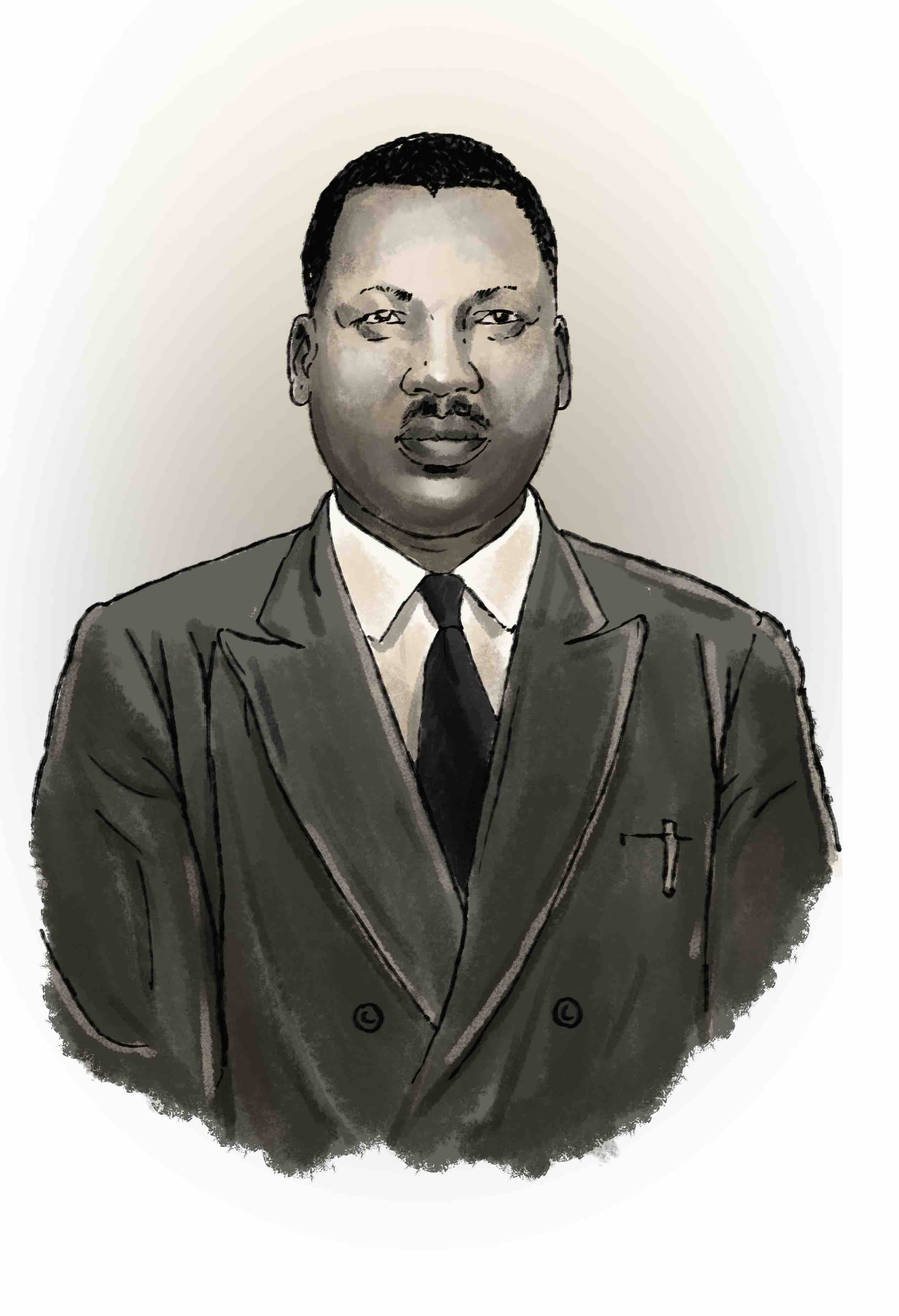Mathias Mnyampala is a celebrated Tanzanian poet, author and a dedicated promoter of Kiswahili language. Despite not having got the opportunity to be taken to school by his parents, through his own efforts, Mathias took himself to primary school at an age of 16 years. After being rejected due to his age, Mathias, not withstanding, continued to attend school and learn by observing what other pupils were taught. In a week he was able to demonstrate astounding ability to read. His comittment won him the teacher’s favour, allowing him to continue to attend school despite the fact that he was already an adult with a wife back home. In the end, Mnyampala’s efforts to educate himself bore fruit by making him one of the greatest Swahili poets, author and judge, translator and a Swahili teacher.
Mnyampala made a major contribution to Kiswahili language especially on poetry. As a poet, he wrote masterfully in a traditional Kiswahili rhyming style that requires one to be rich vocabulary and capable of twisting words to give them a sound he chooses.
He introduced various types of poetry such as Mtiririko poems (sequence poems), Msisitizo emphasis poems (mashairi ya msisitizo) and Ngongera. Ngonjera, which is a form of poetry that involves two or people presenting opposing sides of a motion in a form of public arguement, is attributed to Mnyampala. In fact, the word comes from Ci-Gogo (Mnyampala’s ethnic language) meaning “Going together”
Mnyampala wrote many Swahili manuscripts on poetry, biography, politics and history. He wrote over 29 manuscripts, only a few of which were published during his time. Mathias continued to write even while lying on his sick bed. He wrote his Biography - Maisha ni Kugharimia, after having sensed that he would not survive his sickess. After his death, in 1969, his works were carefully preserved by his second son, Charles Mnyampala, who later handeds them to his granddaughter.??? Neema Charles Mnyampala.
Mnyampala worked as a clerk in various offices in the colonial government between 1942 and 1960. As a tax clerk, Mnyampala travelled the whole Ugogo region to collect tax anpro d establish a census of the populations and their belongings. This gave him an opportunity to come into contact with the the Gogo traditional chiefs and rainmakers, who shared with him the oral sources that he used to write this historical book - Historia, Mila na Desturi za Wagogo. He was pioneering in Kiswahili in the early 1940s the ethno-history trend and in the same time was a faithful messenger for special correspondences between the then Freedom Fighters Movement - Tanganyika African National Union (TANU) and the chiefs.
After the independence of Tanganyika in 1961, Mnyampala continued his administrative career in the judicial system as a magistrate. His former pro-TANU sympathies and his literary talent allowed him to become the national chairman of the association of Kiswahili poets called Usanifu wa Kiswahili na Ushairi Tanzania (UKUTA). This association was in charge of promoting the diffusion of Kiswahili, the official language of the new Tanzanian nation, by teaching to the Tanzanian masses the classical forms of Kiswahili poetry. Mnyampala is recognized as the founder of the Swahili ngonjera. His contribution to the Swahili language, especially in poetry, is truly immense.
Mnyampala died on 8 June 1969 in Dodoma, Tanzania.
His exceptional contribution to the development of Kiswahili and to Kiswahili won him recognition by poets of his time as one of the greatest poets. In 1987, he was recognised posthumously as an outstanding artist by the ministry of culture. In 1994, he was awarded a Medal of recognition of the United Republic of Tanzania by President Ali Hassan Mwinyi in 1994.

